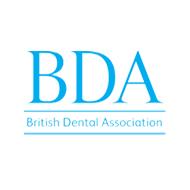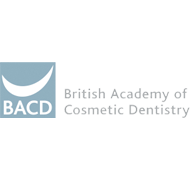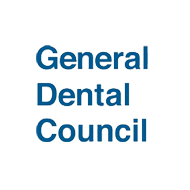Search the A-Z for the meaning of the word or simply to find out more about dental health.
There are currently 22 names in this directory beginning with the letter D.
Decay [dental caries]
The chemical destruction of the tooth substance by acid attack. The process can be slowed or eliminated in the presence of fluoride.
Deciduous Teeth [primary, temporary, milk or baby teeth]
So-called because like the leaves on some trees they are eventually shed or exfoliated. The deciduous teeth start shedding from the age of 5 years or so [slightly earlier in girls] with the loss of the lower central incisors. The replacement process finishes when the last deciduous molar is lost by about 12-13 years of age.
Denplan Excel
Dentists who are part of The Denplan Excel Accreditation Programme have to satisfy a set of requirements before they are able to join. All are committed to the following Statement of Principles:
• Caring about patient feelings and listening and responding to their views and opinions.
• Being committed to the measurement of clinical effectiveness and oral health and ensuring that this is communicated back to patients, both individually and as a group.
• Knowing and fully recording the condition of the oral health of all patients and involving them fully in decisions involving their continuing care and treatment.
• Supporting patients and helping them to understand why certain treatments are being recommended with the aim of continuous improvement in oral health.
• Being committed to opening practice procedures to regular independent review and acting upon the results.
• Undertaking the most appropriate procedures and ensuring that both the dentists and practice team are up to date with the latest dental technology and customer care techniques.
• Promoting clinical excellence.
Dental Public Health
This is a specialised area with a small number of people working either in community dental services or the hospital services.
Dentifrice
A compound which has been formulated to clean the teeth e.g. Toothpastes and tooth powders.
Dentine
The calcified part of a tooth beneath the enamel which surrounds the pulp chamber and root canals. It contains microscopic channels [tubules] that contain nerve fibres that connect to the dental pulp. Dentine is the "living" part of the tooth. Dentine can regenerate when it has been damaged but this is a very slow process.
Dentistry
The industry involved in the care and treatment of the tooth and it's associated areas. It is currently undergoing considerable change. In the past, the NHS dominated the service. It suffered from underfunding and centralised controls. Now, the private [non-NHS] sector is growing rapidly, bringing with it new investment, better services and new technology.
Denture
A device or appliance [prosthesis] (complete or partial) made to replace natural teeth. See www.denture.co.uk for comprehensive advice and information for denture wearers.
Denturist
A Dental Technician who manufactures and fits dentures without involving a dentist. This practice is illegal in the U.K.
Diabetes
A disease involving a disturbance of the sugar metabolism caused by lack of insulin from the pancreas. It is controlled by either monitoring the diet or by regular insulin injections.
Diastema
A gap or space between two teeth. Most commonly used to describe a gap between the upper two central incisors when the lip attachment (fraenum) causes a separation of these teeth. The diastema can sometimes be as much as 2-3mm and surgery, together with orthodontic treatment, may be needed to correct it.
Disclosing Agent
A tablet or liquid which stains plaque in order to identify deposits and make tooth cleaning more efficient.
Distal
The surface of a tooth situated furthest from the mid-line. The dentist will use the expression to notify on the charting the exact site of a filling or a cavity.
DMF
The letters are used as a dental index to indicate the dental health of a population (e.g. D=decayed, M=missing and F=filled).
So for example a DMF index of 4.6 in 16 year olds will mean an average of 4.6 teeth are either decayed, missing or filled per child.
Dressing
A temporary filling material used to help relieve toothache. The material often contains eugenol and zinc oxide which is inserted into the tooth as a paste and then gradually hardens over 24 hours or so. Eugenol(found in oil of cloves)has been used for generations to treat dental pain.
Dry Mouth
'Dry Mouth' [Xerostomia] is associated with a reduced output or absence of saliva, producing dryness of the mouth. Its effects can be reduced by using the following techniques:
• Brush your teeth after every meal and before you go to bed
• Drink plenty of water
• Chew a sugar-free gum
• Avoid sugary food and drink
• Avoid using a mouthwash with an alcohol base








